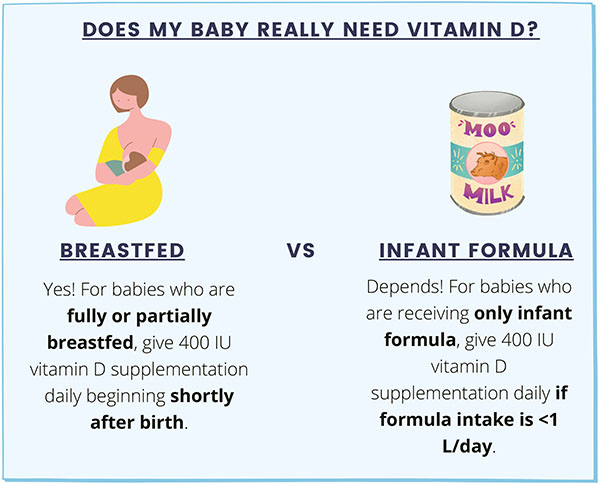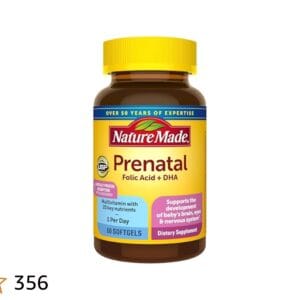As a nursing mother, breastfeeding is a vital way to provide your baby with essential nutrients for growth and development. However, it can also deplete your body’s stores of vital vitamins and minerals. To maintain your health and ensure a smooth breastfeeding journey, taking the right vitamins is crucial. Breastfeeding vitamins for nursing moms are specifically formulated to fill nutritional gaps, supporting both mom’s and baby’s well-being. By understanding the importance of these supplements, nursing mothers can make informed decisions about their health and their baby’s health, promoting a healthy and thriving breastfeeding experience.

Essential Nutrients for Nursing Mothers
Nursing mothers require a balanced diet rich in essential nutrients to support both their health and the production of nutritious milk for their babies. Among these nutrients, certain vitamins play a crucial role in maintaining the health and well-being of both mother and child. Vitamins such as Vitamin D, Vitamin B12, and others are vital for the mother’s health and are also secreted into the breast milk, benefiting the baby.
The Role of Vitamin D in Breastfeeding
Vitamin D is crucial for bone health in both mothers and their babies. It aids in the absorption of calcium, which is necessary for the development of strong bones and teeth. Nursing mothers are at risk of Vitamin D deficiency, especially if they have limited sun exposure or wear clothing that covers most of their skin. Supplementing with Vitamin D can help maintain adequate levels. | Nutrient | Importance | Recommended Daily Intake | | — | — | — | | Vitamin D | Essential for bone health | 600-800 IU |
Importance of Vitamin B12 for Nursing Mothers
Vitamin B12 plays a significant role in the production of red blood cells and the maintenance of the nervous system. A deficiency in Vitamin B12 can lead to fatigue, weakness, and neurological problems in mothers, and can also affect the baby’s development. Nursing mothers, especially those following a vegan diet, are at risk of Vitamin B12 deficiency. | Nutrient | Importance | Recommended Daily Intake | | — | — | — | | Vitamin B12 | Crucial for red blood cell production and nervous system health | 2.8 mcg |
Benefits of Omega-3 Fatty Acids During Breastfeeding
Omega-3 fatty acids, particularly DHA, are important for the baby’s brain and eye development. They also support heart health in both mothers and babies. While not a vitamin, Omega-3 fatty acids are an essential nutrient that nursing mothers should consider supplementing, especially if their diet is lacking in fatty fish or other sources. | Nutrient | Importance | Recommended Daily Intake | | — | — | — | | DHA (Omega-3) | Supports brain and eye development | 200-300 mg |
Iron Supplements for Nursing Mothers
While iron is a mineral, not a vitamin, it’s an essential nutrient for nursing mothers. It helps prevent anemia, a condition that can cause fatigue and weakness. Nursing mothers may need to supplement with iron, especially if they experienced significant blood loss during delivery or have a diet low in iron. | Nutrient | Importance | Recommended Daily Intake | | — | — | — | | Iron | Prevents anemia | 9 mg |
Choosing the Right Multivitamin for Nursing Mothers
Nursing mothers can benefit from taking a postpartum multivitamin that is formulated to support their nutritional needs during breastfeeding. These multivitamins typically contain a balanced mix of vitamins and minerals, including those crucial for the health of both mother and baby. When choosing a multivitamin, nursing mothers should look for products that are specifically labeled as safe for use during breastfeeding. | Nutrient | Importance | Recommended Daily Intake | | — | — | — | | Postpartum Multivitamin | Supports overall health and breastfeeding | Varies by product |
What vitamins should I take as a breastfeeding mom?

As a breastfeeding mom, it’s essential to ensure you’re getting the necessary nutrients and vitamins to support both your health and your baby’s development. A well-balanced diet is crucial, but sometimes supplements can help fill any nutritional gaps.
Essential Vitamins for Breastfeeding Moms
Breastfeeding women have a higher demand for certain vitamins and minerals. Key among these are vitamins that support the baby’s growth and the mother’s health. Some of the critical vitamins include:
- Vitamin D, crucial for bone health in both mom and baby.
- Omega-3 fatty acids, particularly DHA, which supports the baby’s brain and eye development.
- Calcium, essential for the baby’s bone development and the mother’s bone health.
Benefits of Continuing Prenatal Vitamins
Many healthcare providers recommend that breastfeeding mothers continue taking prenatal vitamins. These supplements are formulated to support the mother’s health and the baby’s development during pregnancy, and their benefits can extend into the breastfeeding period. Continuing prenatal vitamins can help ensure that the mother is getting enough iron, folic acid, and other essential nutrients. The benefits include:
- Supporting the mother’s overall health and recovery postpartum with iron and other nutrients.
- Ensuring the baby receives necessary nutrients through breast milk, such as vitamin B12.
- Filling any dietary gaps with a broad spectrum of vitamins and minerals.
Additional Nutrients to Consider
In addition to prenatal vitamins, some breastfeeding mothers may need to consider other supplements based on their diet and health status. For instance, mothers who are vegan or vegetarian might need additional supplements due to the potential lack of certain nutrients in their diet. Some nutrients to consider include:
- Vitamin B12, found primarily in animal products, is crucial for the baby’s nervous system development.
- Iodine, essential for thyroid function in both mom and baby.
- Probiotics, which can support the mother’s digestive health and potentially influence the baby’s gut health through breast milk.
What are the best postpartum vitamins for breastfeeding moms?

The best postpartum vitamins for breastfeeding moms are those that provide essential nutrients for both the mother’s health and the production of high-quality milk. These vitamins should support the mother’s recovery from childbirth, maintain her energy levels, and ensure the baby receives adequate nutrients through breast milk.
Nutrients Essential for Breastfeeding Moms
Breastfeeding moms require a diet rich in certain nutrients to maintain their health and support milk production. Calcium is crucial for bone health, while iron is necessary to replenish stores depleted during pregnancy and childbirth. Other essential nutrients include omega-3 fatty acids for heart health and brain function, and vitamin D for bone health and immune function. Here are key nutrients needed:
- Calcium for bone health and development
- Iron to prevent anemia and support energy levels
- Omega-3 fatty acids for heart health and brain function
Key Considerations for Choosing Postpartum Vitamins
When selecting a postpartum vitamin, breastfeeding moms should consider the product’s formulation, looking for those that are specifically designed for their needs. It’s essential to choose a vitamin that is rich in the necessary nutrients and is safe for both mom and baby. Some key considerations include the presence of folic acid to support the baby’s development and the absence of harmful ingredients. Here are factors to consider:
- The presence of essential nutrients like iron, calcium, and omega-3 fatty acids
- Safety for breastfeeding, ensuring the product does not contain ingredients that could harm the baby
- Manufacturer reputation, choosing products from well-known and trusted brands
Benefits of Postpartum Vitamins for Breastfeeding Moms
Taking postpartum vitamins can have numerous benefits for breastfeeding moms, including supporting their overall health, aiding in recovery from childbirth, and ensuring they produce high-quality milk. These vitamins can also help manage postpartum symptoms and support energy levels. Some of the key benefits include:
- Supporting the mother’s physical recovery after childbirth
- Aiding in the production of nutrient-rich breast milk
- Helping to manage postpartum fatigue and support energy levels
Do I need to give my baby vitamins if breastfeeding?

Breast milk is considered the optimal source of nutrition for infants, providing all the necessary nutrients, vitamins, and minerals for growth and development. However, the nutritional content of breast milk is influenced by the mother’s diet and nutritional status.
Nutritional Requirements of Breastfed Infants
Breastfed infants generally receive all the necessary nutrients from their mother’s milk, but certain vitamins and minerals may be present in variable amounts depending on the mother’s diet. For instance, vitamin D and vitamin B12 levels in breast milk are directly related to the mother’s status. If the mother’s diet is deficient in these nutrients, the infant may be at risk of deficiency.
The key factors influencing the nutritional requirements of breastfed infants include:
- The mother’s dietary intake and nutritional status
- The infant’s age and growth rate
- The presence of any underlying medical conditions in the infant
Vitamin Supplementation for Breastfed Infants
The need for vitamin supplementation in breastfed infants depends on several factors, including the mother’s diet, the infant’s age, and the presence of any risk factors for deficiency. Vitamin D supplementation is often recommended for breastfed infants, particularly if the mother is deficient or has limited sun exposure.
Some of the key considerations for vitamin supplementation in breastfed infants are:
- The risk of vitamin D deficiency, particularly in infants with darker skin or limited sun exposure
- The mother’s dietary intake of vitamin B12 and other essential nutrients
- The infant’s overall health and growth rate
Recommendations for Breastfed Infants
The American Academy of Pediatrics recommends that breastfed infants receive vitamin D supplementation from birth to 12 months. Additionally, infants of mothers who are vegan or have a diagnosed vitamin B12 deficiency may require supplementation.
Some of the key recommendations for breastfed infants include:
- Vitamin D supplementation (400 IU/day) from birth to 12 months
- Monitoring of the mother’s dietary intake and nutritional status
- Regular check-ups with a healthcare provider to assess the infant’s overall health and growth
Frequently Asked Questions
What are the essential vitamins and nutrients for breastfeeding mothers?
Breastfeeding mothers require a balanced diet rich in essential nutrients to support both their health and their baby’s development. Key vitamins and nutrients include calcium for bone health, iron to prevent anemia, omega-3 fatty acids for brain and eye development, and vitamin D for bone health and immune function. Additionally, folate is crucial for preventing birth defects of the baby’s brain and spine. A well-balanced diet that includes a variety of foods such as fruits, vegetables, whole grains, lean proteins, and healthy fats can provide these necessary nutrients.
Can breastfeeding vitamins replace a healthy diet?
While breastfeeding vitamins can help fill nutritional gaps, they should not replace a healthy and balanced diet. A well-nourished diet provides a broader range of nutrients and benefits that supplements cannot match. Vitamins and minerals in food are often more easily absorbed by the body than those in supplements. Therefore, breastfeeding mothers should focus on consuming a varied diet and consider supplements as an addition to, not a replacement for, their dietary intake.
How do breastfeeding vitamins support milk production?
Certain nutrients and vitamins play a crucial role in supporting milk production and quality. For instance, galactagogues such as fenugreek and blessed thistle are often included in breastfeeding supplements because they are believed to help increase milk supply. Moreover, adequate intake of vitamins and minerals like zinc and vitamin B12 supports the overall health of the mother, which in turn can positively affect milk production.
Are there any specific vitamins that nursing moms should avoid?
Nursing mothers should be cautious with their intake of certain vitamins and supplements. For example, high doses of vitamin A can be toxic, and excessive intake of caffeine and alcohol can pass into breast milk, potentially harming the baby. It’s also important for breastfeeding mothers to consult with their healthcare provider before taking any herbal supplements, as some herbs can have adverse effects on milk production or baby’s health. Always consult a healthcare professional before starting or stopping any supplement regimen.














